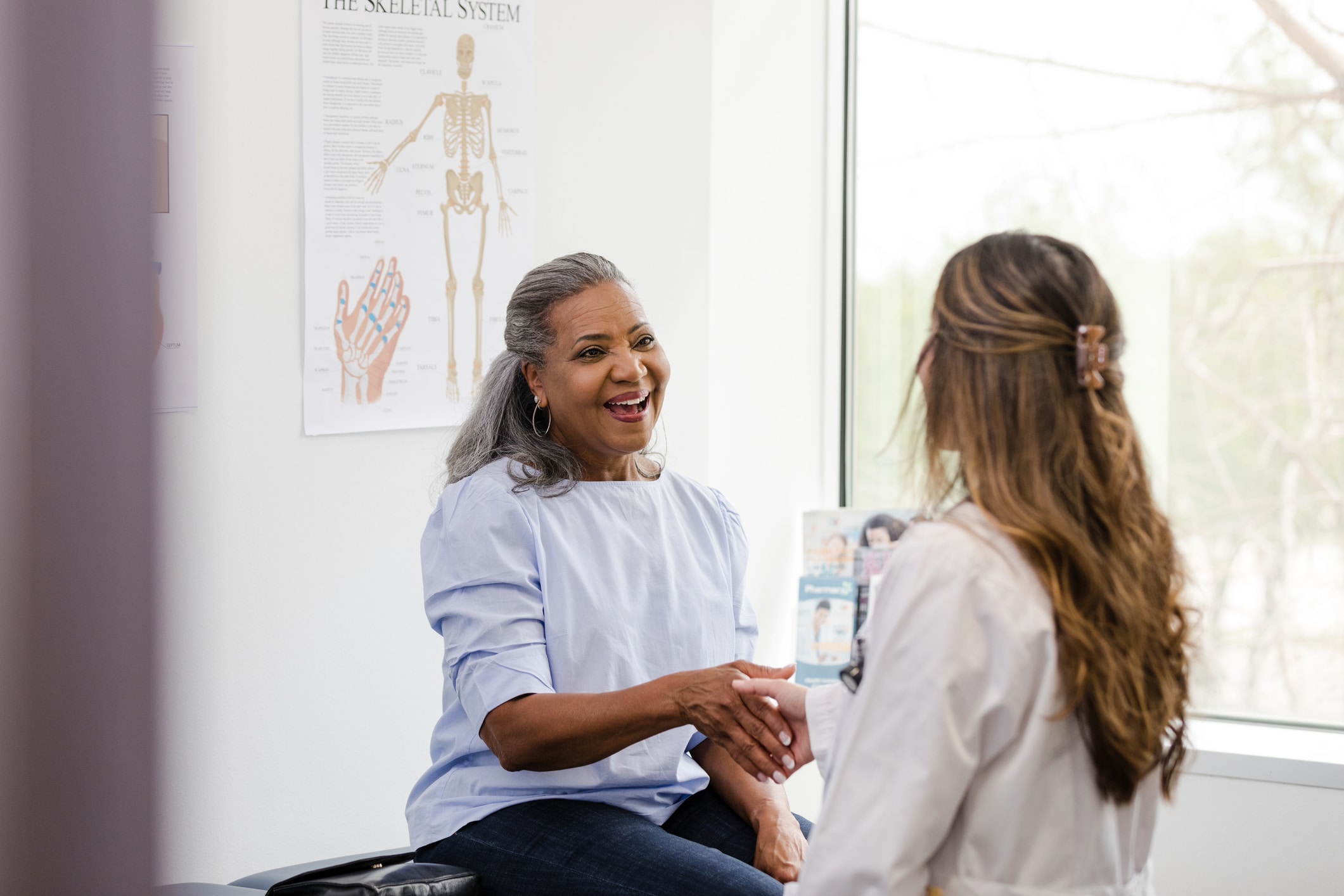Heartburn and Reflux Center in Albuquerque, New Mexico
If you experience frequent heartburn, you are not alone. More than one third of adults experience heartburn at least once a month, and as many as 25 million adults experience heartburn daily in the United States. The Heartburn Center at Lovelace Medical Group is the only clinic of its kind serving the greater Albuquerque area. With a team of multidisciplinary specialists that includes gastroenterologists, general surgeons, and nurses, we are focused on the diagnosis and treatment of acid reflux and gastroesophageal reflux disease (GERD). Using state-of-the-art diagnostic and imaging capabilities only offered at Lovelace, we provide fast, effective heartburn treatment you can depend on.

Conditions we treat
Our highly skilled team of gastroenterologists and general surgeons are trained in a variety of minimally invasive techniques and approaches to treat the following conditions:
- Barrett’s esophagus
- Dysphagia
- Esophageal diverticulum
- GERD
- Hiatal hernia
- Laryngopharyngeal reflux disease (LPRD)
- Paraoesophageal hernia
We care for these conditions using various treatments, ranging from minimally invasive diagnostic testing and surgical solutions to medical treatment options and diet counseling. You don’t have to suffer from the constant, chronic discomfort of heartburn — seek treatment today with our compassionate team of heartburn experts.
Call us at 505-727-0000 to schedule an appointment in Albuquerque. We can see most patients within one week, and you do not need a referral from your doctor.
What is heartburn?
Heartburn is a burning sensation in the chest that occurs when stomach acids travel back up the esophagus. Some patients may also experience a bitter or sour taste in the throat and mouth, sore throat, dry cough, or hoarseness. Symptoms of heartburn may get worse after eating or when lying down. Frequent heartburn can make it difficult to eat or swallow and may be a sign of a more serious condition.
Heartburn can have many causes, from lifestyle choices to a dysfunctional digestive system. Risk factors for developing heartburn include:
- Being overweight or obese
- Certain medications
- Diet
- Hiatal hernia
- Pregnancy
- Smoking
Foods that cause heartburn can include:
- Cheese
- Chili powder and pepper
- Fast food
- Fatty meats, such as bacon and sausage
- Fried food
- Pizza
- Potato chips and other processed snacks
Heartburn is the most common symptom of acid reflux or gastroesophageal reflux disease (GERD).
What is GERD?
Gastroesophageal Reflux Disease (GERD) occurs when stomach acid flows back into the tube that connects your mouth and stomach (esophagus). This backwash (called acid reflux) can irritate the lining of your esophagus. GERD can cause a wide range of uncomfortable symptoms, like heartburn. If not detected and treated early, GERD can lead to more serious conditions, such as Barrett’s esophagus or esophageal cancer.
What is Barrett’s esophagus?
Barrett’s esophagus is a pre-cancerous condition that affects the lining of the esophagus. Barrett’s esophagus is caused by GERD; regular exposure of your esophagus to stomach acid can cause inflammation and narrowing over time, and even change its cell composition. With Barrett’s esophagus, the normal cells in your esophagus will change into cells that resemble those found in your small intestine, which can increase your risk of developing esophageal cancer.
What is a hiatal hernia, and how can it cause heartburn?
A hiatal hernia is caused when part of the stomach protrudes up into the chest through a sheet of muscle called the diaphragm, causing symptoms such as:
- Heartburn
- Chest pain
- Difficulty swallowing
Hiatal hernias are more common in older adults (over 50) and can be caused by many factors, such as obesity, pregnancy, and chronic coughing. Treatment options include lifestyle changes, medications, and, in some cases, surgery.
When should I see a doctor about heartburn?
When over-the-counter medications (such as antacids or indigestion medicine) aren’t working, it may be time to seek treatment. You may also want to see a doctor if you:
- Don’t want to keep taking medication to control heartburn
- Experience regurgitation, chest pain, difficulty swallowing, acid reflux, or a bitter or sour taste
- Have a chronic cough
- Have persistent or chronic heartburn that doesn’t go away
To schedule an appointment with one of our heartburn and GERD specialists, please call 505-727-0000.
